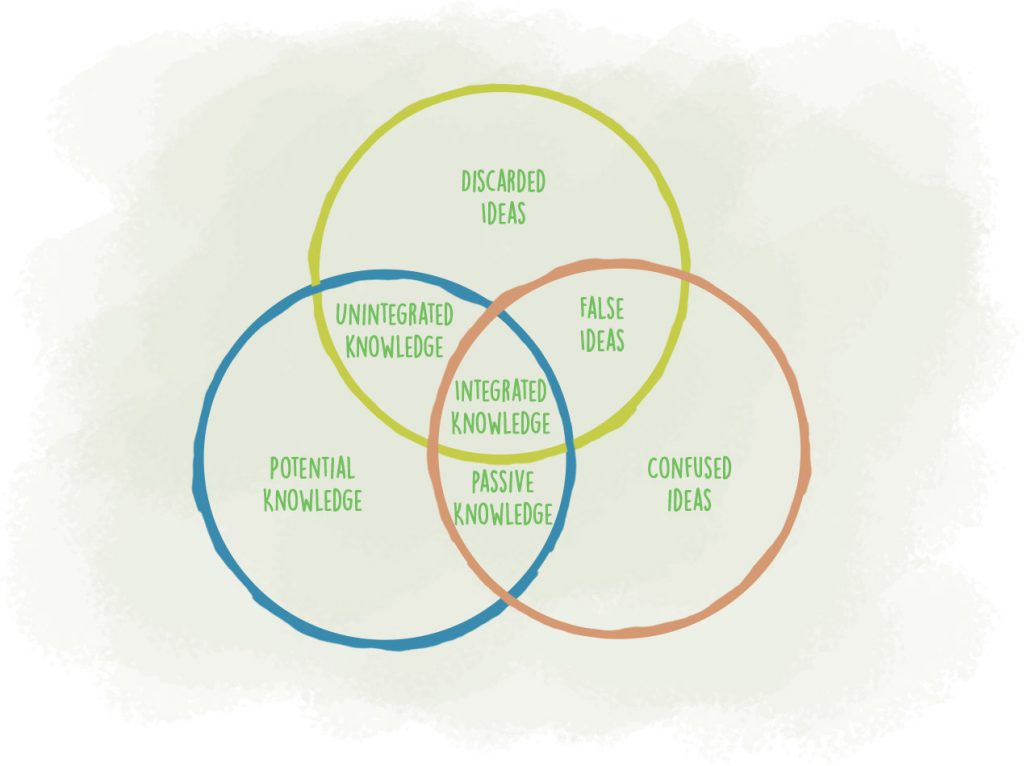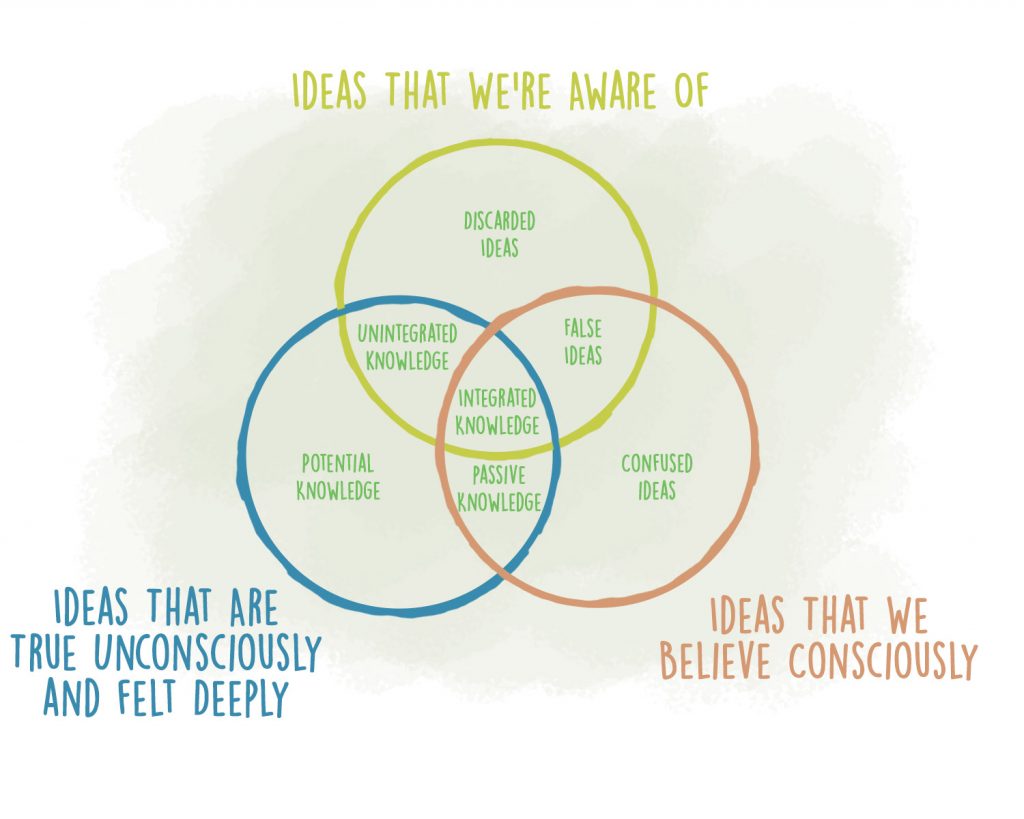The Value of Ideas

We normally associate the concept of value with money, real estate, and investments. But we pay to maintain health and relationships, so intangible assets clearly have value as well. Most of us understand this; yet intangible assets tend to get undervalued or lost altogether when we’re making important decisions, perhaps because of their lack of measurability. If we knew the real value of the assets at stake in our decisions, we might act differently and experience better outcomes in our lives.
For instance, many people move for better-paying jobs without carefully considering the tradeoff of losing the friendships and community it took them years to build. They also might not factor in the stress from the new job as well as the move itself. Whether or not their decision ultimately turns out to be correct in terms of net fulfillment, the odds of them achieving happiness increase the more factors they’re able to consider.
I’ve noticed that there’s one asset very few people consider in their decisions, or even consciously acknowledge the existence of: ideas.
Ideas: Theoretical Yet Immensely Valuable
Compared to houses and cars, or even health and relationships, ideas feel airy, transient, and easy to ignore. Yet I don’t think I’d be exaggerating if I said that ideas are some of the most valuable things we have. People pay more for ideas over the course of their lifetimes than they do for homes.
The types of ideas I’m thinking of here aren’t the fleeting type, like a concept for a new business or ice cream flavor. They’re the strongly-felt, emotionally-laden type that the word “ideology” was invented to describe: Religion. Freedom. Respect. Love. Safety. We not only value these things, we would go to enormous lengths to protect them.
Examples of the value of ideas are everywhere if you really look. I’ll start with the extremes.
On the negative pole, there are Orthodox women who live in servitude to their husbands because they value the word of God; gang members who risk their safety and freedom because they value a sense of belonging; and suicide bombers who give up their lives because they value the idea of salvation. All these people technically have other options, but they may as well be literally chained to their ideas because giving them up is too much to overcome.
On the positive pole, there are people who value academic achievement enough to spend a decade or more pursuing advanced degrees and certifications; others that dedicate their lives to activism because they value the idea of being a good person; and still others whose lives revolve around their kids because they value the idea of a child knowing they are loved.
You might be noticing that, even in the case of the positive ideas, the investment into them is enormous, raising the stakes for whether or not we understand the tradeoff we’re making. Simply becoming aware of the ideas we have and how much they really matter to us could change the way we earn and spend resources in our lives, allowing us to pursue what we truly value more of the time.
The Landscape Of Ideas
To begin to understand how much we have to learn about our ideas, let’s describe the landscape of what’s in our psyche.
I think of there as being 3 categories of valuable ideas within us, which overlap in different ways:
- Ideas we are actively aware of
- Ideas that are true to us, unconsciously and deep down in our psyche
- Ideas that we believe consciously, whether or not they are true to us deep down
Much of our contentment in life revolves around the second category – ideas that are true to us on a deep level. When we can integrate this knowledge, or pass it through the walls of our conscious awareness, and actively believe this knowledge, then we are at one with our personal truth.

In my experience, it is very rare for a person to consciously know and believe the majority of ideas that are true to them on a deep level. When they do, it is typically later in life, after they’ve done a lot of self-inquiry. Usually our personal truths get trapped outside our awareness or belief systems.
For example, there are many people who live a long time believing that their sexual orientation is something other than what it truly is deep down. These people probably grew up in cultural systems that were intolerant of their real sexual orientation. As a result, they possess false ideas about the type of person they’re attracted to.
There are also people who “know” that they are stupid, ugly, or unlikeable on a deep level (despite it being objectively untrue) and could admit they feel this way to a close friend. But they avoid this truth most of the time, keeping it hidden below the surface in order to protect themselves from the pain it causes them. As a result, they walk around with passive knowledge of an important truth they need to confront.
And finally, there are people who have had someone point out a deep personal truth of theirs (e.g. “You’re most motivated in times of challenge”) and thus are consciously aware of it, but haven’t taken the time to integrate it into their conscious mind. As a result, they live with this unintegrated knowledge until they’ve taken the time to meditate on it and add it to their daily mental framework.
How To Acquire Valuable Ideas
None of us are born with all the ideas we need to feel secure, happy, and content. Our formative ideas are given to us by our parents and the culture we’re born into. We acquire other ideas as we grow. Finding the ideas that resonate with us and assimilating them into our active, conscious mind, is one of the great challenges of our lives.
So how do we locate these valuable ideas? Many of them are only available through psychodynamic therapy, which involves exploring our early life to look for the ideas that shaped our current existence. Others can be found transiently through psychoactive drugs like ayahuasca or ibogaine. And others may be acquired through dialogues and media.
To really begin this grand exploration of what makes up your being, you need to realize how many ideas you currently assume that aren’t objectively true. For instance, if you live in a Western country, you probably believe that you have an individual self that is continuous over the course of your lifetime. Yet certain Native American and Asian cultures believe that the self is part of a collective being that stretches well beyond any person’s lifetime. Neither belief is wrong. Both are mere ideas.
There do seem to be some ideas that are universal among human beings — the importance of attachment, love, work, and security, to name a few. But when you consider how much of our psyche is essentially given to us by the people and systems we were born into, most of our beliefs seem pretty arbitrary.
And yet, we do have agency over our lives: we can know, deep down, that an idea is true to us and take steps to live consistently with that truth. And doing so will make us feel more complete. There are few practices that confer as much value upon our lives as that one.

Thank you for these thoughts!! Reading and listening to podcasts has really helped me become aware of ideas I have believed in but that are not true. I find that the more I call myself out on un-true beliefs, the happier I become. Thanks again, Evan — looking forward to your next article!!